




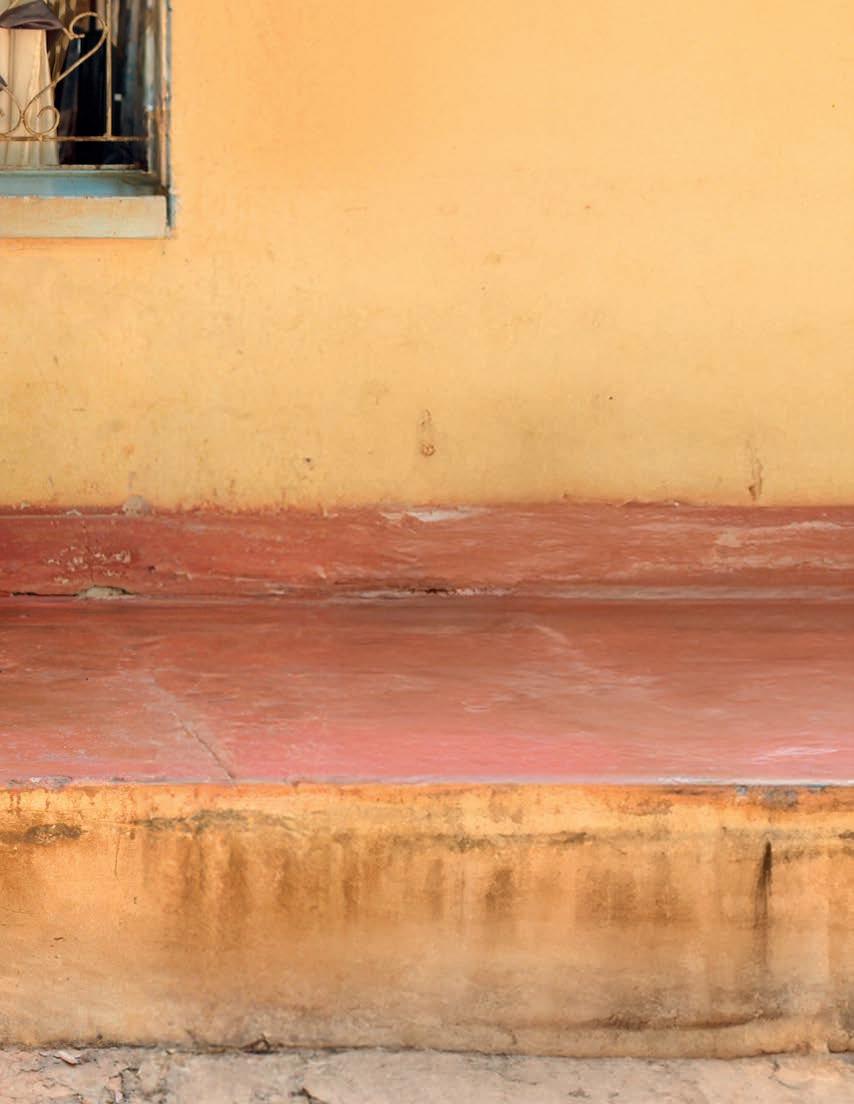
September 2024
This year’s report is the story of triumphs.
Within these pages, you will read about Aida’s comeback, Caroline’s first boxes of bees, Fatima’s influence on her local Chief, Eneles’s mineral excavation, Mabruka’s shea business breakthrough, and Abigail’s footprint in Australia.
While we often talk about reaching millions more girls and influencing national systems, we never lose sight of the fact that this reach is made up of individual girls, each with her own set of unique experiences and stories. This year, the odds against her have multiplied - with our partner communities affected by skyhigh inflation, devastating floods and crushing droughts. These conditions add to the immense pressure on already scarce resources - stacking those odds against the 15% of young women from the most marginalized communities who typically complete secondary school in sub-Saharan Africa.
And yet, we have accounts from more than 278,000 young women in the CAMFED Association who, thanks to your support, have overcome these odds and one-by-one dismantled the obstacles that blocked their paths.
Each of these triumphs is fueled by an unstoppable momentum. Each dollar given, each step taken, each woman educated who in turn mentors a girl from the next generation - all of it shifts the status quo. Our report charts the course that starts with an individual girl, who grows and through her powerful peer network transforms norms, practices, perceptions, aspirations, policies and systems.
These pages reveal that we have increased the number of partner schools by 30% as a result of expanded partnerships with governments. Governments are integrating our climate education content into the school curriculum to help build resilience to food insecurity and extreme weather events. Young women are exporting their goods across continents, speaking up and demonstrating what’s possible when girls access their right to education.
Let’s celebrate our collective triumphs, and all that you are making possible, as we, at the same time, set audacious ambitions for the future. Now is the time to foster resilience in Africa, with Africa, and unlock the full potential of young women’s agency!
Together We Can: Together We Are Pamoja Tunaweza….
Angie Murimirwa, Chief Executive Officer & Ann Marie Almeida, Director of Development
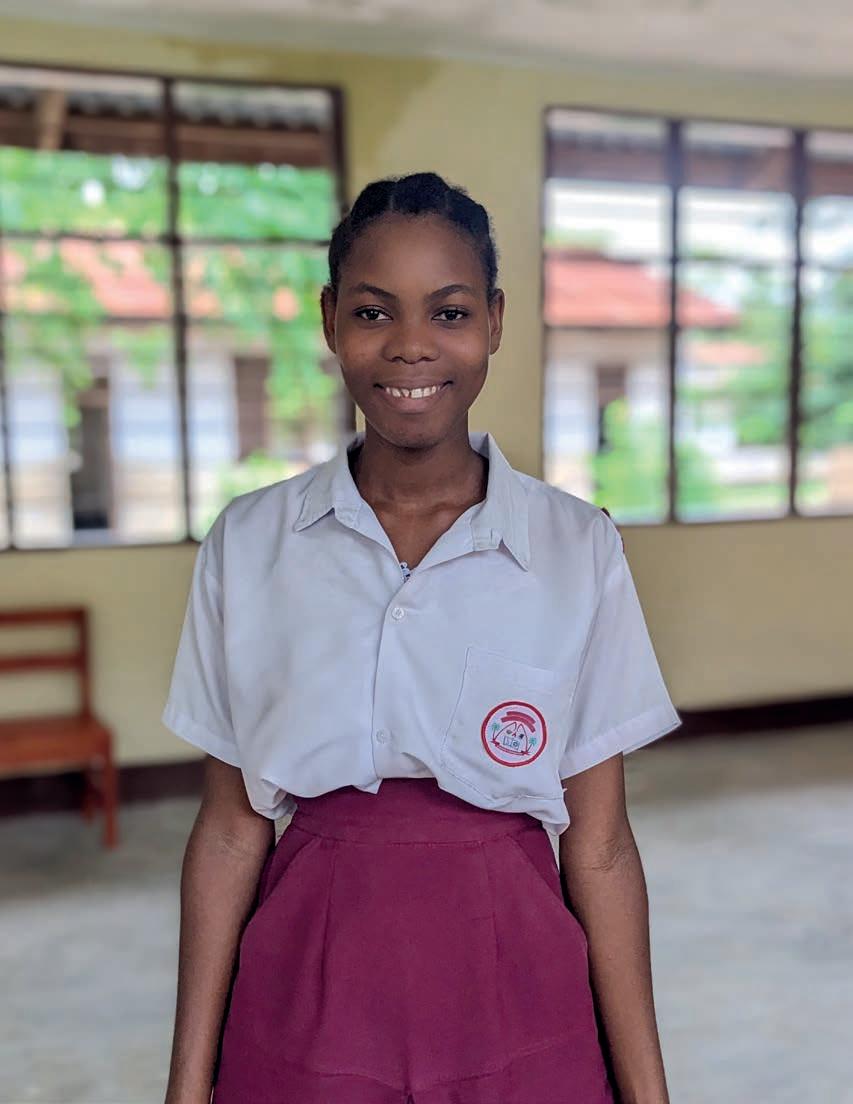
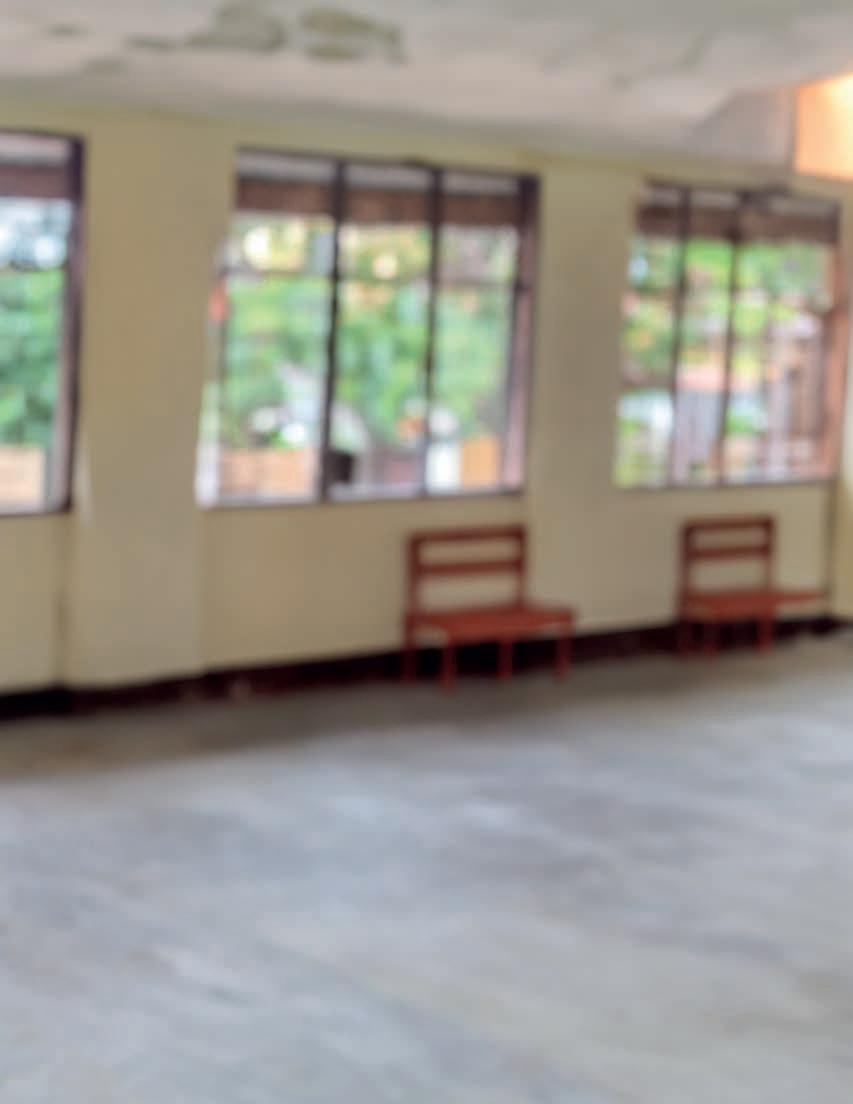
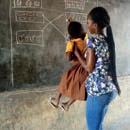
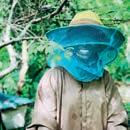
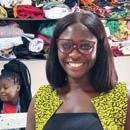
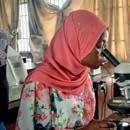
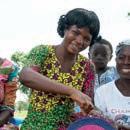
Copyright © CAMFED International 2024 www.CAMFED.org
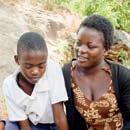
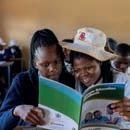
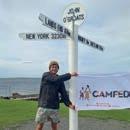
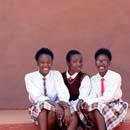
credits: Anke Adams, Joseph Assah Mills, Johnny Birch, Innocent Chapewa, Chris Loades, Kumi Media, Eliza Powell, Vecteezy.com, Catherine Wood, Yidan Foundation
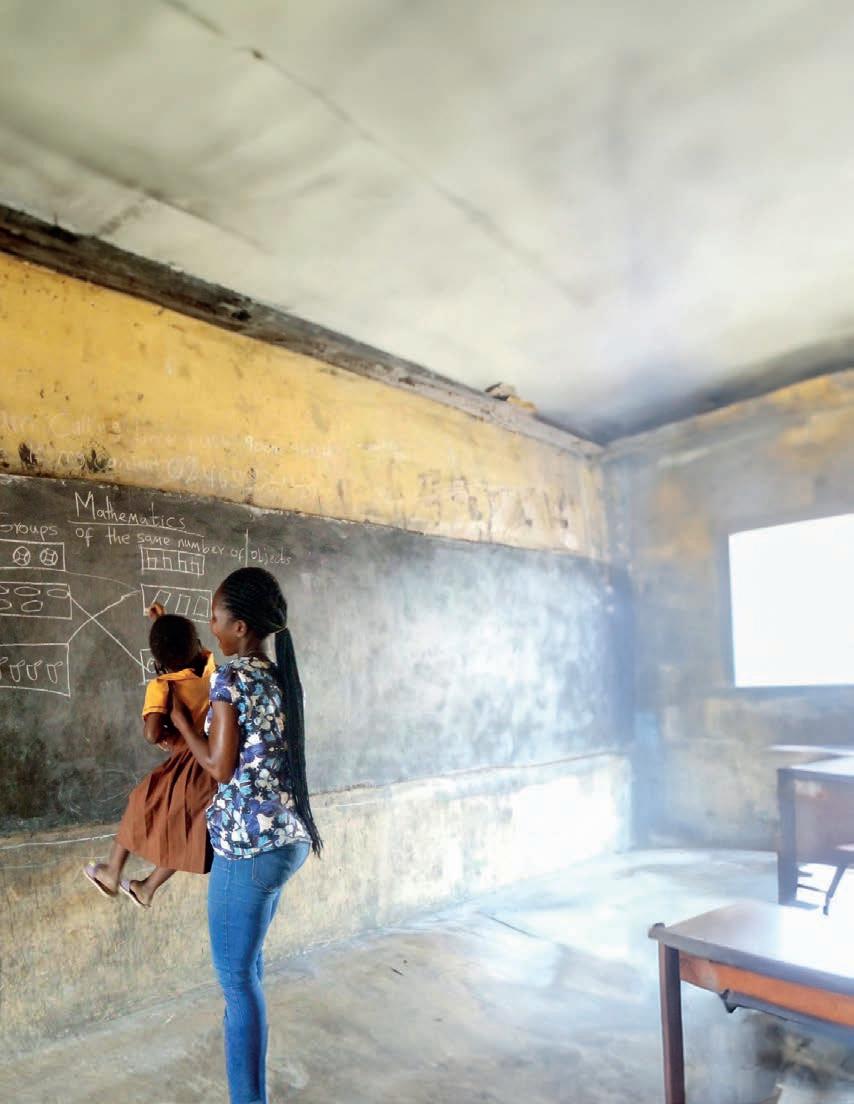
Together we are...
In 2023 CAMFED celebrated 30 years as an organization and the Association of young women supported through school by CAMFED celebrated its 25th anniversary. Today, the Association is the largest and fastest growing network of educated young women in Africa - currently with 278,959 members across Ghana, Malawi, Tanzania, Zambia and Zimbabwe. Each member of the network is, on average and voluntarily, financially supporting another three girls to go to school. This is the ‘multiplier effect’ of a girl’s education, and it is changing the future for whole communities.
Among other successes, in the last year we have seen:
• A 30% increase in the number of our partner schools as a result of expanding our reach with governments
• 363,000 girls reached with financial support from Association members, despite the impact on their lives of this year’s extreme climate and economic events
• 15,814 new jobs created by young women business owners
With the Association leading the charge, we aim to reach 15M children over the six remaining years of the decade, with 5M more vulnerable girls receiving intensive support and another 10M children reached through our systems change work with governments. This ambition builds on a foundation of 2.47M girls already supported through school since 2020. CAMFED is also registering with a sixth country: Kenya, following an indepth scoping study and initial engagements with the Ministry of Education.
Governments in our partner countries are making notable policy shifts towards more inclusive education systems. A growing number have launched efforts to make secondary education accessible through the removal of school fees and through re-entry policies for pregnant schoolgirls (Ghana, Tanzania and Zambia).
At the same time, even without the burden of fees, for rural populations living in extreme poverty, the cost of books, uniforms, and school supplies can still push school out of reach. These are contexts where a one month supply of menstrual products costs the same as maize flour for twenty meals. There is a greater need now more than ever for CAMFED’s comprehensive support of the most marginalized child.
This report shows where we are investing time and resources to ensure we are responding to the need and opportunity unlocked by our growing network of alumnae champions and supporters.
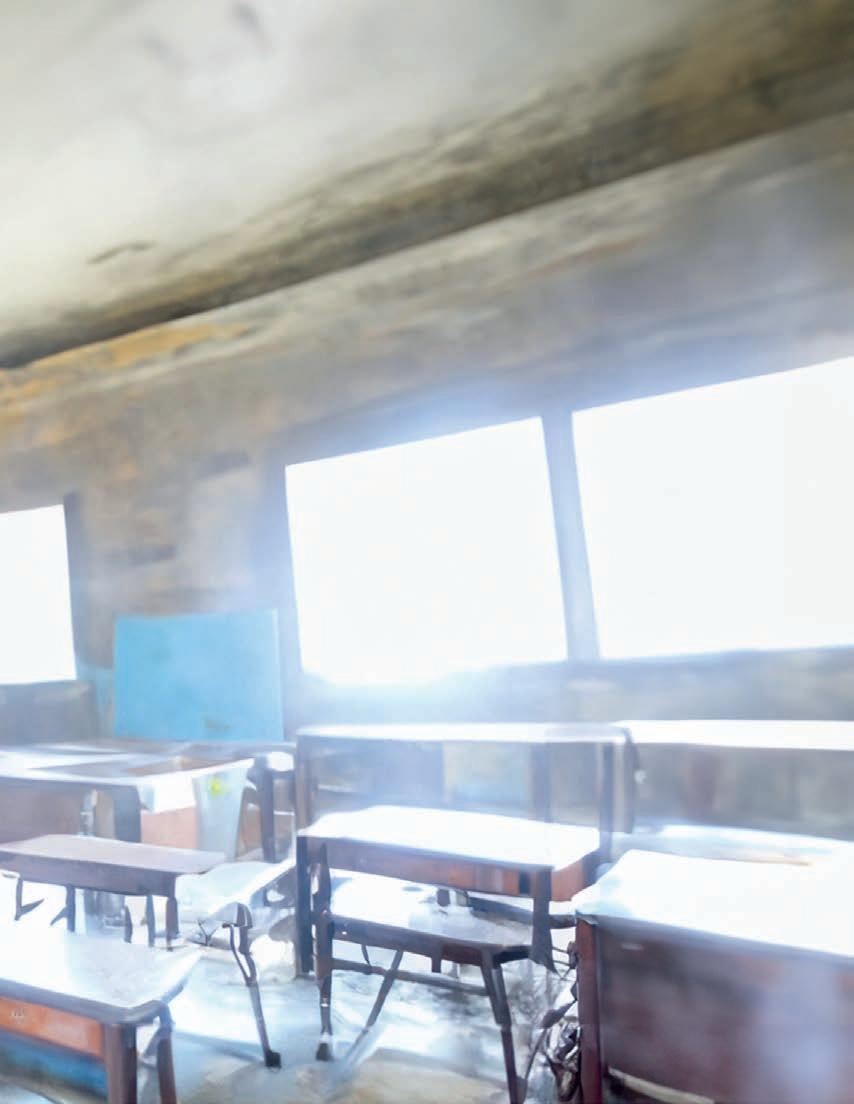
So far this decade…
2.47M
girls reached with financial and social support
90,495
new businesses started
206,033 young women supported to transition from school into further studies, paid employment or entrepreneurship
“The CAMFED community has shown time and time again that it is able to make the almost impossible happen. Courage and ambition are always CAMFED watch words.”
The Honorable Julia Gillard, Companion of the Order of Australia, and Patron of CAMFED
are...
hen she was a teenager, Aida Kalolo lacked the basic items needed for secondary school, but these alone were not her reason for missing lessons.
After her mother passed away it fell to her to run the family home. She had responsibilities and she lost sight of her own dreams. It took her family and friends to help her remember her dreams.
“I’d been given all the items that are needed for school. I started wearing shoes and sleeping on a mattress because of CAMFED. But it was the words of my dad that gave me the strength to work hard and have aspirations for what I could be after my studies,” says Aida, who nine years later is a qualified teacher helping other children in her district.
“I started to live a good life at school and enjoy it. I sometimes try to think if I were to not go to education what could happen to me? Maybe I could have even seven children, maybe I could be suffering at home, I could have a bad life.
“Now I want to support others to exercise their right to education like me.”
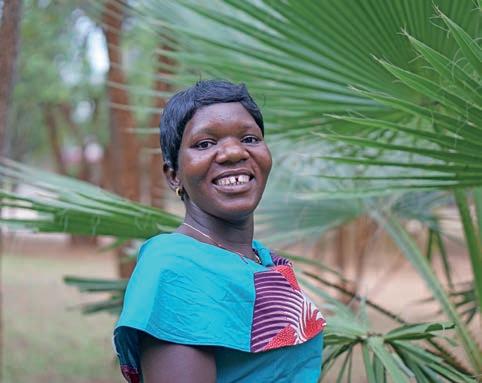
“We must
not allow ourselves to be disabled by the scale of the challenge, daunting though it is.
We
can’t make things good for everyone. But if we can help just one young woman lead with dignity, self-esteem, and enough resources to support a flourishing life, that is literally transformative. It is a privilege to have the opportunity to do that.”
- Simon Peyton Jones, CAMFED supporter, UK
Mavis Anartey, 25, from Ghana, also recalls having to learn to believe in her own potential.
“I had the feeling other people knew better than me. For every opportunity that came, I would push my friend to go so that I would be behind her,” says Mavis, who received support from CAMFED to gain a business degree.
It was her peers in the CAMFED Association who pushed Mavis to do more. Over the course of her studies, she gradually began to consider her own leadership potential and, in 2019, put herself up for election to Vice President of the Association chapter at her university.
“They said ‘No!’,” Mavis recalls. “My sisters told me, ‘You cannot run for Vice President, you are more capable than that, you are a President.’ And so I was elected CAMFED Association President at my university, and from that day onwards, I’ve been a leader.”
Today, Mavis is owner of MayAfrique, a fashion business with seven employees and an online program that has trained more than 100 women in tailoring.
She reflects: “I’m very proud of myself and how far I’ve come. Success takes kindness to your inner self to say, ‘Even if it’s difficult, this is what I want to do.’
“Now I am able to pull seven people along, another of us brings ten, and together we build a better community. We are supporting one another to build and achieve our dreams.”
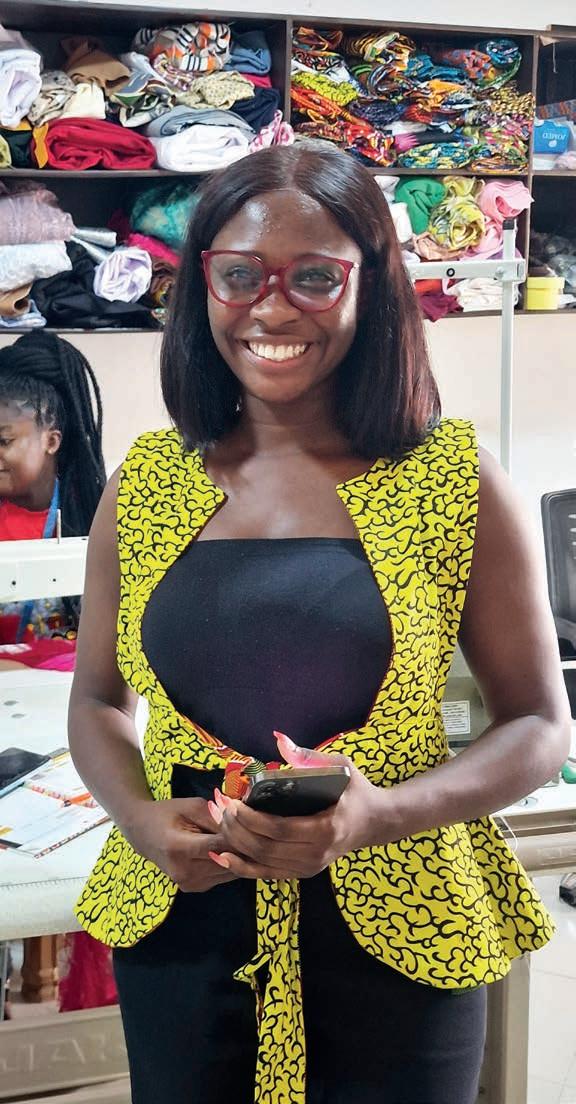
Recognizing the courage it takes for these young women to step outside of their comfort zones, London-based Anthea Harrison motivates her own group of changemakers in London.
“People tend to live in their own bubbles,” says Anthea, who over six years has regularly brought friends together to collectively fund girls through school. “In the South East of England, you don’t know a great deal about what daily life is like for a girl in rural Zimbabwe. In my small way, I’m educating people to become more understanding about the problems that others face. It puts into perspective our own experiences and the amazing opportunities we’ve been given, and the more you understand that, the more you feel the need to give something back.
“CAMFED creates connections between people. The work is both global and immensely individual. They bring
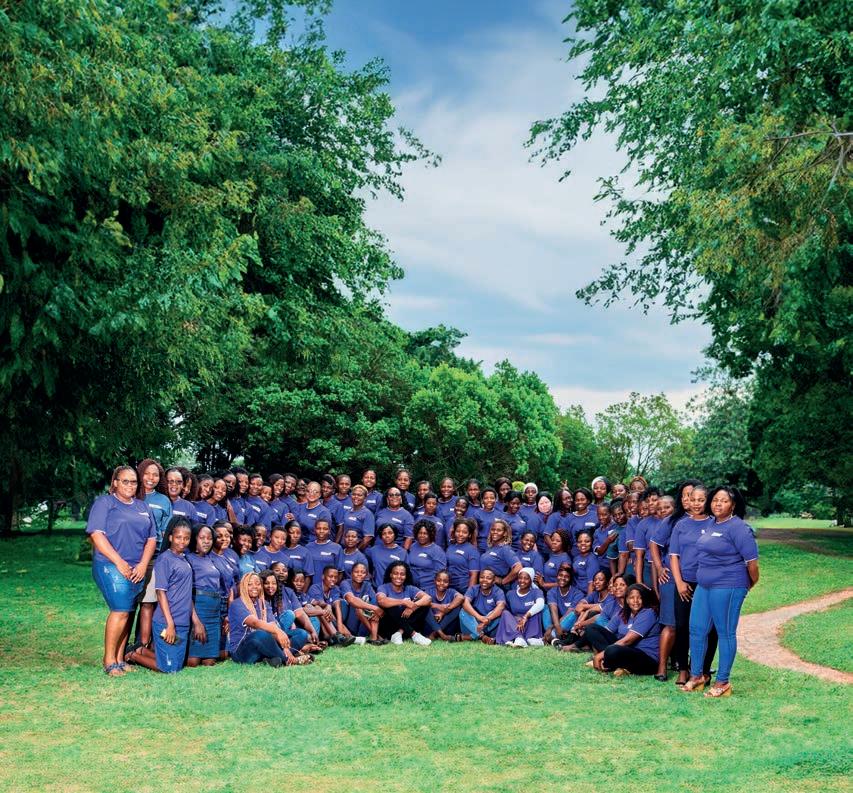
Girls who complete secondary school with CAMFED’s comprehensive support are eligible to join the CAMFED Association, the alumnae network founded in 1998 by the first cohorts of girls to graduate. The Association was formed as a self-governing network through which young women voluntarily commit to becoming advocates and activists for girls’ welfare and education. Having succeeded against the odds, they know what it takes to support the most marginalized girls in their communities. There are currently 278K members, a number which grows as 94% of graduates currently elect to join after completing secondary school.
Girls who graduate school with CAMFED support go on to financially support three more girls in their wake.* This is the ‘multiplier effect’ of girls’ education
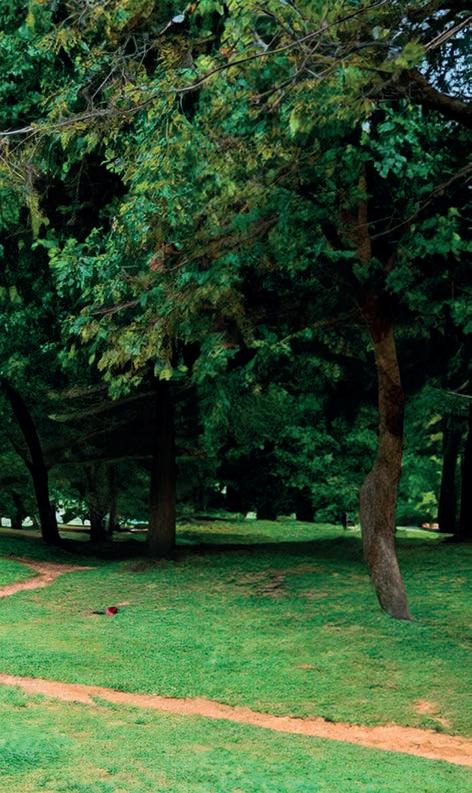
*This multiplier is an average across the CAMFED Association network
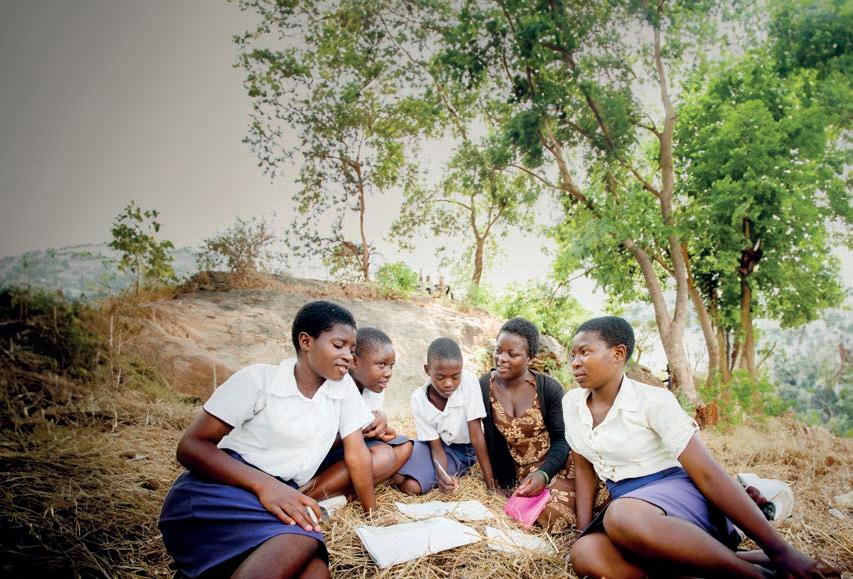
atima Frank recalls pushing through challenges and championing the rights of girls and women in her journey to becoming a teacher.
“Despite the financial and cultural barriers I faced, I decided for myself that no matter how hard it will be in this life, I’ll manage to change this community,” says Fatima, from the Zomba District in Malawi.
“Most people from my village didn’t go to school because of poverty and some cultural beliefs that educating girls is a waste of resources and time. Despite this, my grandmother valued education above everything, and she raised me to push through challenges.
“I dreamed of becoming a teacher, supporting my community, and becoming one of the champions of my village. When I shared this dream with the village Chief to discuss the barriers girls face in their education, he said to me ‘How would you become a teacher if education is so difficult for girls?’ That day ignited in me the drive to do something with my own life that would also benefit my community.”
In 2016, Fatima completed school and trained to become a CAMFED Learner Guide - an activist and peer mentor in her community.
She says: “I tell my students that nobody can destroy your destination. They might delay you, but no one can destroy your destination if you have set your mind to it.”
Today, 15,336 young women are volunteering as Learner Guides to engage teachers, village committees, school committees, even the local community development officers in supporting girls through school. They deliver weekly sessions of a life-skills curriculum called My Better World that is timetabled into the school day, and they engage 1:1 with the most vulnerable children.
Young women like Fatima are making a measurable difference to vulnerable girls in their communities. A research collaboration with the University of Dar es Salaam, REAL Centre at the University of Cambridge, and CAMFED’s partner communities helps us understand this impact by looking specifically at the role of Learner Guides in shifting mindsets on education, gender based violence, early marriage, and re-entry to school after childbirth.
Disseminating findings at a symposium in Cambridge earlier this year, Rose Mwaipopo of the University of Dar es Salaam, described how role models like Fatima bridge school and families.
“Their work breaks down taboos about sex, helping girls understand their power to negotiate; and they report incidences of gender-based violence to the authorities. Learner Guides are stepping into leadership positions, including on school committees,” says Dr. Mwaipopo.
“Governments have been open and supportive of a scale-up of this model, but it is clear that Learner Guides have to be supported by other changes, including policy reform. The young women face many challenges, as they themselves are part of the system they are trying to shift.”
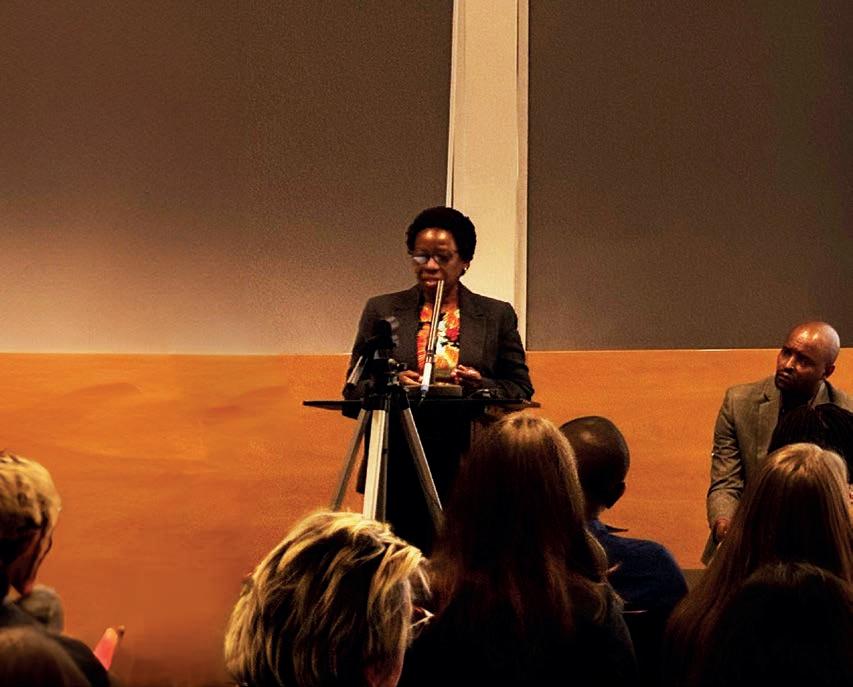
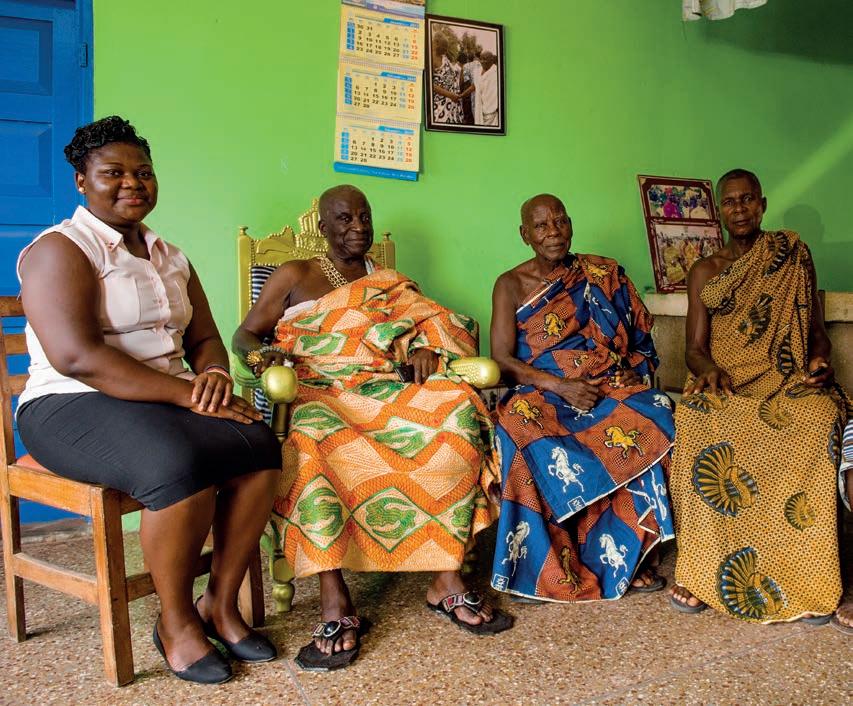
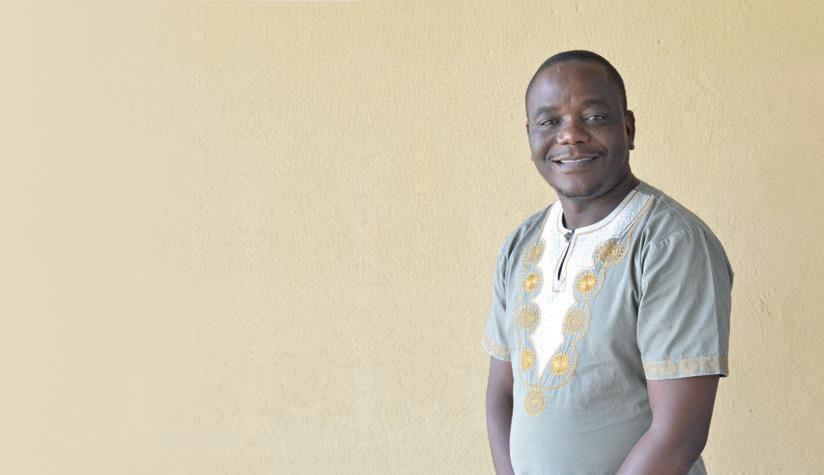
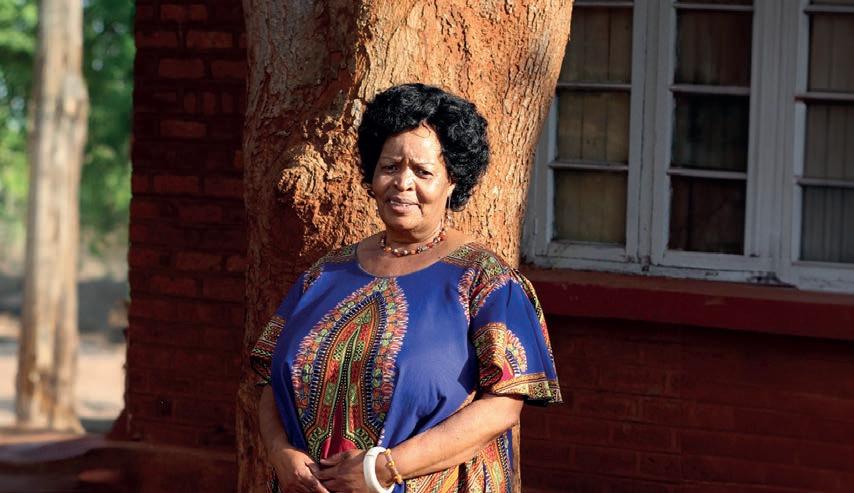
Traditional Leader, Paramount Chief Kyungu of Karonga, northern Malawi, reinforces Robert’s point:
“We as traditional leaders, and our spouses, we must love one another, respect one another, work together to succeed, and change what is lacking. Let us be champions. If we need to change things for girls’ education, let us change them. If we want our community to develop, we must educate our children.”
Senior Chief Chikumbu is one of very few female Senior Chiefs in Malawi and she, too, welcomes the collective action on girls’ education.
“I’ve managed to develop and enforce bylaws ending child marriages and early pregnancies as well as encouraging parents to keep their children in school,” says Chief Chikumbu. “I hold younger chiefs accountable for what happens in their communities, keeping watch on the dropout rates and early marriages to ensure that we are steadfast in our commitment to the simple fact that girls should be in school.”
Back in Fatima’s home community, seeing what she has achieved as a teacher and leader, her local Chief has instructed his cabinet: “When we discuss girls’ education, make sure Fatima is here.”
The Pathy Family Foundation was drawn to CAMFED because of its communityled approach.
“Communities must first be able to identify what the challenges are, then create the solutions to address them,” says Carole Murriithi, Program Officer. “If that is decided for anyone, it won’t work.
“That is why CAMFED’s approach speaks to the Pathy Family Foundation so directly. There is not just a focus on formal education systems, but also the importance of informal education and leadership that actively shifts norms. To be an active leader in the community is to think about the root of the social systems that exist, and to change how they are thought about through action and education. All of these collective efforts are interconnected. None of this can happen in silos.”
The Pathy Family Foundation supports our Climate Education Handbook in Zambia and Zimbabwe, which is delivered by Learner Guides, and has been co-developed by governments for use in schools nationwide (more on page 24).
Together we are...
The road to financial independence is not direct or secure for women in rural communities. Two Association Members from Ghana share how they forged paths for themselves.
Caroline Dari chose honey harvesting over a career in medicine when she realized it could have an equal impact in her community.
“It was while I was in college that the idea of going into agribusiness came about,” says Caroline, 28. “Unemployment among Ghanaian youth is a major issue. I started thinking about what I could do for myself so that, when I came out of education, I wouldn’t be in the line of unemployed graduates.
“One day I needed honey and I couldn’t find any and, when I did, it wasn’t good quality. I started trying to learn more about the honey industry and realized I could turn this into a business and, at the same time, I’d be providing employment for my community.
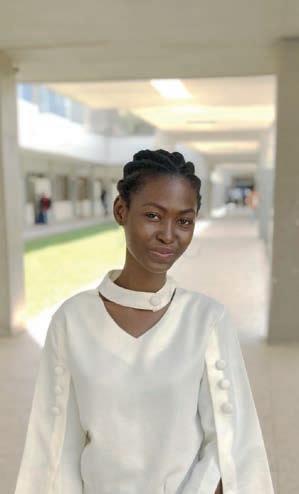
“In the beginning people would say, ‘But you went through university, why don’t you go find an office job?’ And when I started my business, people in the community were surprised that you could even keep bees in a box and harvest honey. They asked ‘Are you sure the bees will stay?’”
For three years, Caroline has advocated for her business and to shift perceptions that agricultural enterprise is
She says: “To be in agribusiness now, you have to be smarter than before. I have tried a lot and I have failed a lot. There are certain practices that you would have done previously that you can’t do anymore because, for instance, we now have very little rain.”
Today, Caroline employs four full-time and 15 seasonal staff, and the men and women in her community recognize her business as a valuable source of income. She advises people on how to consume healthy sugars, and with the knowledge she has gained through trial and error, is planning to support other beekeepers, hoping that one day all Ghanaians can benefit from locally-produced honey.
“When we do the harvest, people see the honey and the combs, they are always excited about it,” says Caroline. “When I was little, my mind was set on being a doctor but I realized there were other ways I could impact society. Maybe I don’t wear a white coat as a doctor, but I’m doing it in my beekeeping suits.”
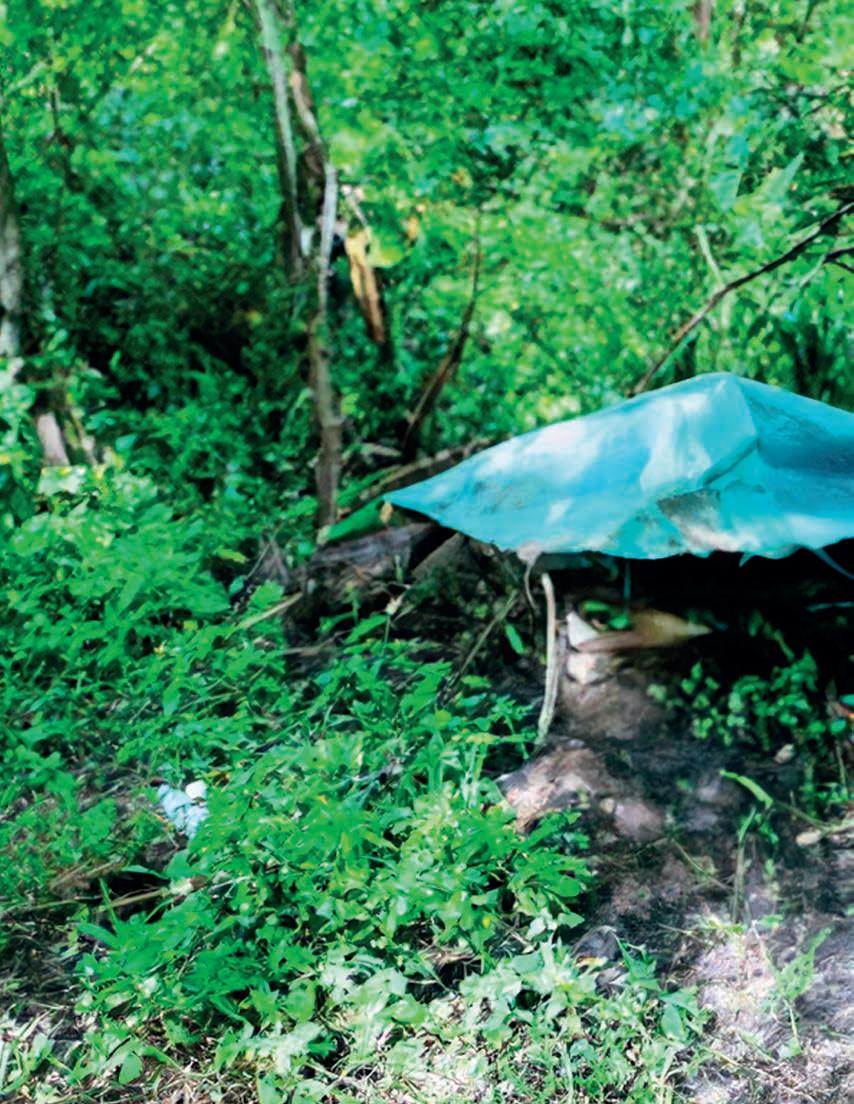
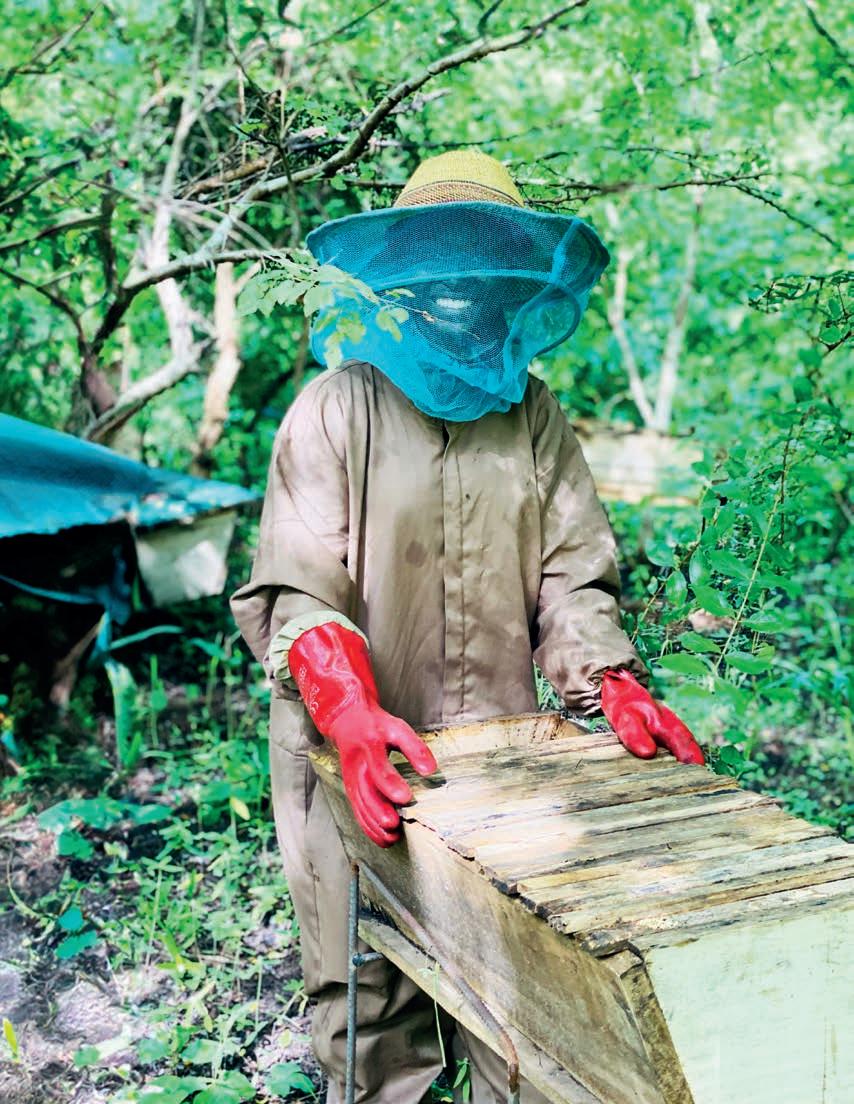
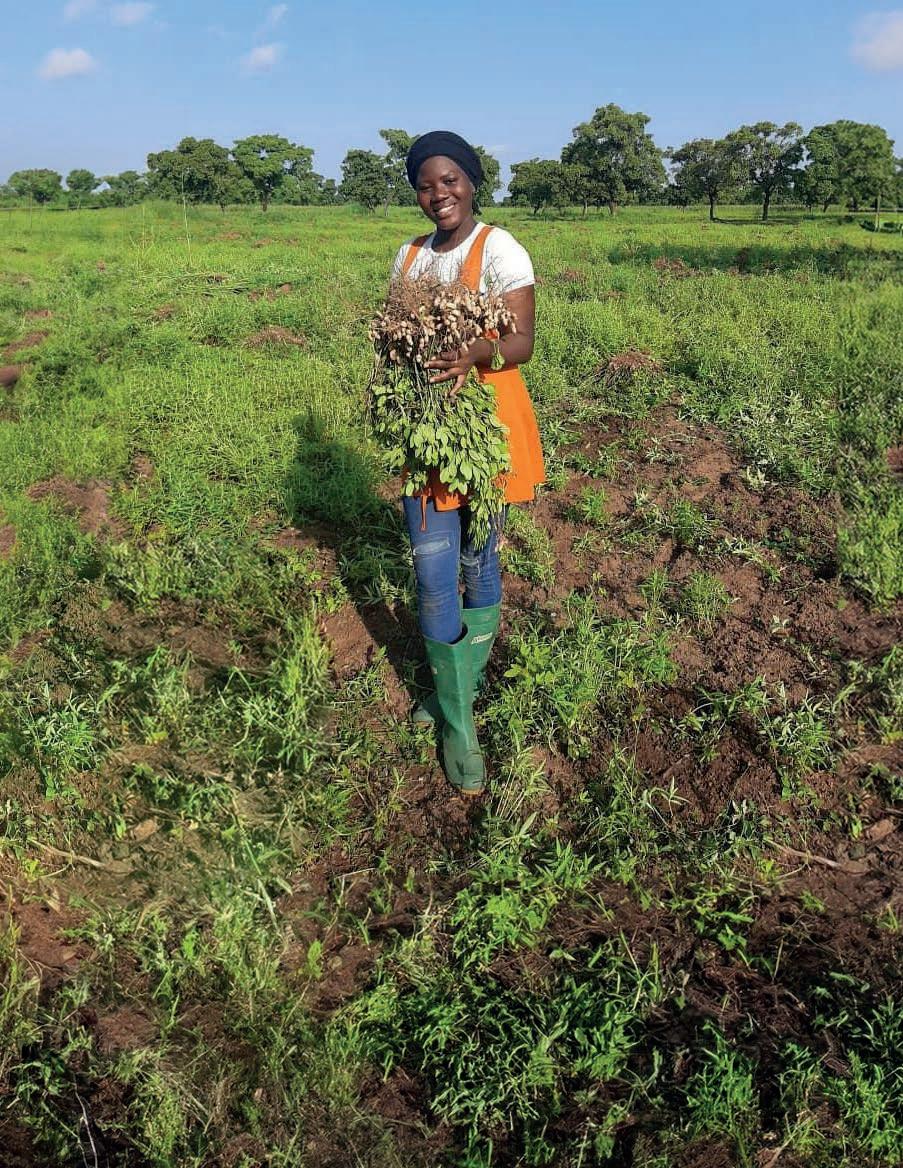
CAMFED’s Agriculture Guides cascade sustainable farming knowledge, methods and techniques to other young women to raise productivity, combat hunger and build resilience to climate shocks, while demonstrating that farming can be the basis of a thriving business. There were 851 active Agriculture Guides at the end of 2023 and the number is set to nearly double by the end of this year, with the program expanding to Ghana and Tanzania.
CAMFED partner of 15 years, Gower Street, started supporting the Agriculture Guide program in Ghana in 2023, co-Director Sally Vivyan says: “Protecting our planet means supporting effective local organizations to enable the socially just energy transition. The Agriculture Guide program is based on supporting local solutions in order to create wider change for our planet. This brings together education, climate solutions, and women’s leadership to shift how we look at the world.”
Mabruka Hamza Mogtari, also from Ghana, recalls pivoting her enterprise when COVID-19 interrupted her university studies.
In 2019 she was studying for a degree in Information Science on a scholarship from CAMFED. For additional income, she launched a peanut business with $160 won through business pitching competitions. Then COVID-19 hit and her university was forced to close.
“I didn’t want to be idle. So I did a little bit of research, and realized that, although we have a lot of shea butter where I come from in the upper west of Ghana, shea nuts aren’t found in a lot of African countries. I saw it as an opportunity.
“I started digitally advertising the fact that I could export shea butter, targeting my adverts in the countries I thought could be new markets.”
Today, Mabruka has 16 employees and 52 seasonal staff, trading shea butter in seven countries in Africa and Europe. She is also part of a shea producers’ cooperative with 345 women members from 11 communities in the region. Last year with CAMFED’s support, the cooperative secured Fairtrade certification.
The entrepreneurial spirit of Association members like Mabruka inspires others running successful businesses to come behind CAMFED.
Alastair Little, an entrepreneur and CAMFED supporter based in the UK, says: “Having spent the best part of a decade on the executive team at a high-growth technology company, I would say I encountered a number of significant challenges along the way. But listening to the stories of CAMFED’s alumnae, and the kinds of barriers they face, brings an entirely new perspective. It sounds like they have had to overcome every possible obstruction - from access to finance and markets, to extreme weather, discrimination and counteractive traditions. It is inspiring that so many have started businesses and even more impressive that the majority manage to sustain and grow them.”
Latest data show that the two year survival rate for a CAMFED Association business is 90% in Ghana, 94% in
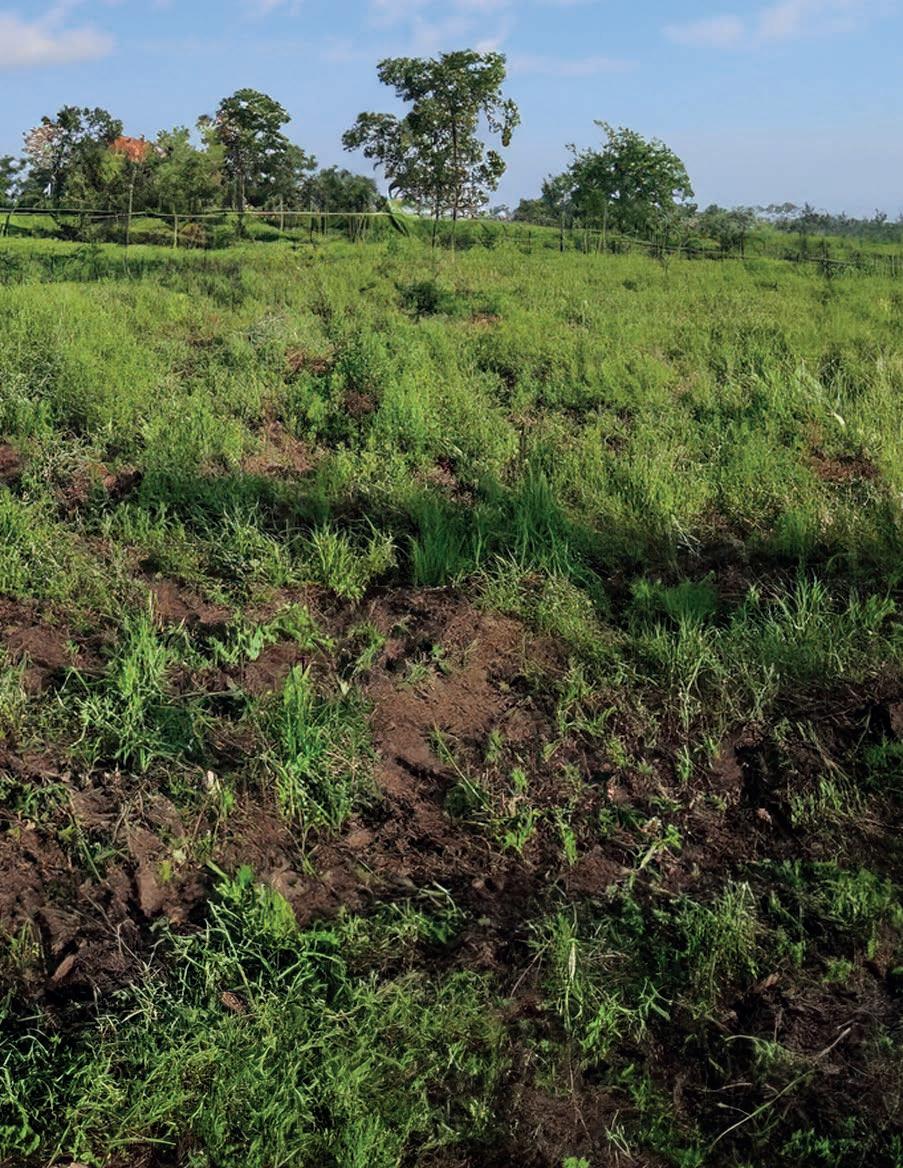
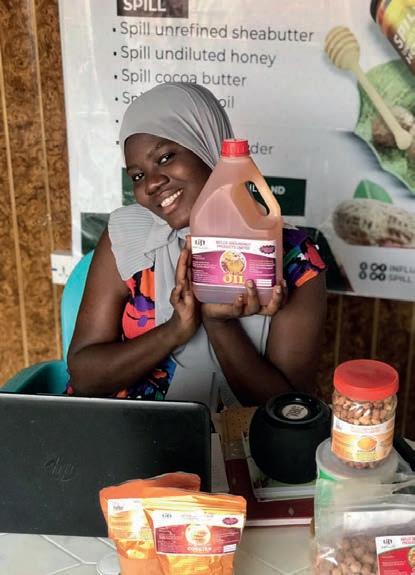
Association members in Ghana are currently part of six Fairtrade certified cooperatives trading in Shea. The Waterloo Foundation helped establish a fund through which these cooperatives could contribute a portion of their profits directly to other girls coming through school with CAMFED’s support. These six are among a wider group of 12 cooperatives spanning sectors including shea, basket weaving and rice, which have so far donated 22,000 Cedis ($1,400) in six months.
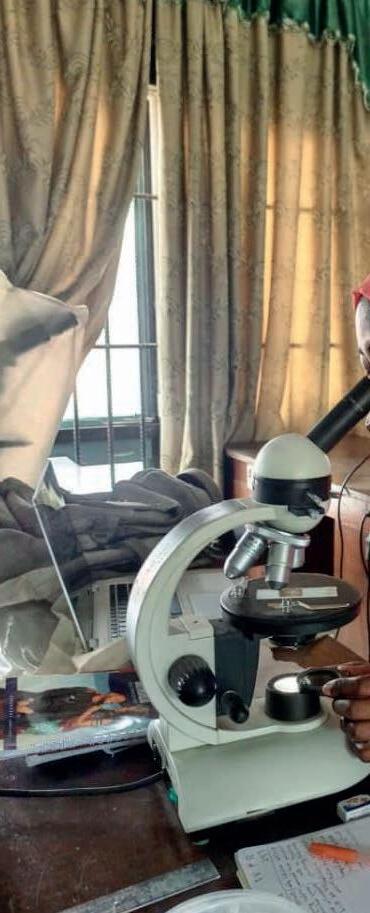
Together we are...
hen Eneles Nsamila started her university course in Earth Science she was one of 28 women in a class of 202 - and the only one to graduate with a distinction.
“Geoscience is still a new field in Malawi, and despite my qualifications, men still doubt my ability simply because I am a woman,” says Eneles, 26, who now holds a MSc in Mineral Exploration. “Every time we go to the field, I am fighting against gender bias.
“But I never let their doubts impact my determination to succeed. Since my childhood, I have been fascinated by the outdoors. Whenever I went to collect firewood or water, I would be distracted by the world around me, collecting rocks to bring home and look at more closely.”
Eneles was selected by her community for CAMFED support when she was in secondary school, following which her academic performance soared. She was the first girl in her family to complete school.
“Back home some people in my community questioned the relevance of a career in geology,” she says. “But geology brings Malawi closer to renewable energy such as geothermal. I can help my community understand the soil type in our area to inform our agriculture and increase farming yields. I can work towards building disaster prevention and preparation systems for the earthquakes we experience. My work gives me so many ways to give back to my community and to move us forward as a country.”
Women are underrepresented in STEM fields (science, technology, engineering and math) globally, leading to a dearth of service and research that supports women’s needs. For example, in northern Ghana, only 43% of births are attended by a skilled provider, contributing to maternal morbidity rates of 310 per 100,000, one of the highest in the world. Research overwhelmingly shows that when women are represented in STEM, the quality of the research and services are higher for everyone. And their participation in academia, research and practice will ultimately inform more inclusive policy.
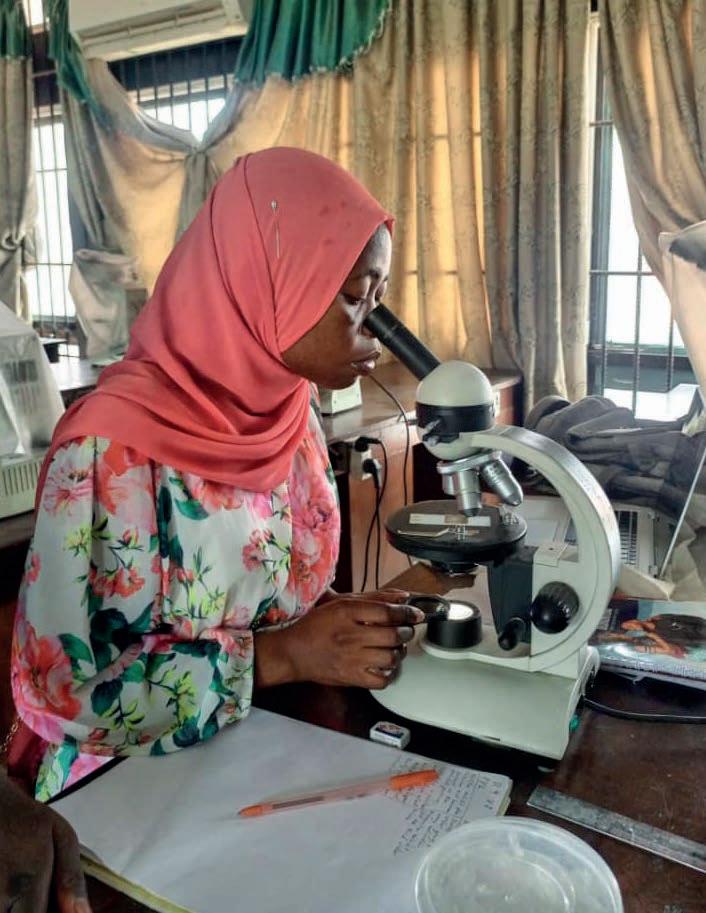
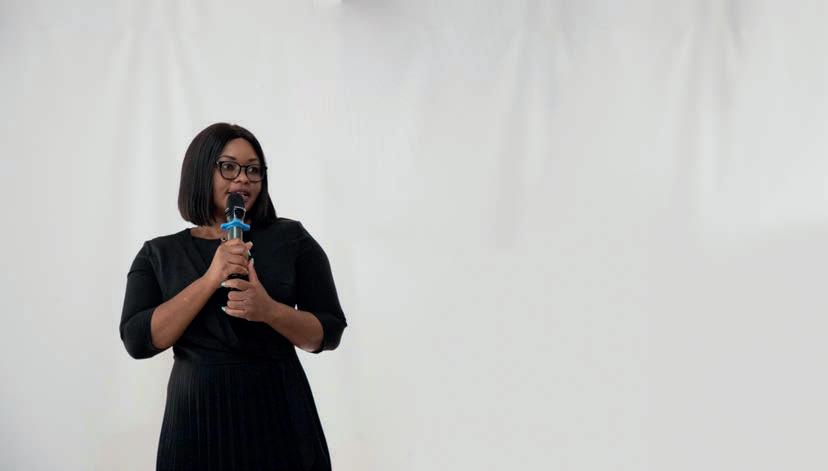
Namenda Malupande, National Director of CAMFED Zambia, has seen an increase in the demand for university level study since she joined the organization 15 years ago, but STEM subjects are often out of reach for the most underserved students.
“For many of the women CAMFED supports, their schools don’t have facilities for science subjects. They don’t have laboratories, and if they do, they are not equipped for running tests and experiments. Furthermore, these subjects are maledominated, so women studying them encounter gender bias and other barriers. We see the impacts on women even having the desire for STEM courses,” says Namenda.
In response, CAMFED has been working with higher education institutions to develop better support networks for young women coming from rural areas who want to pursue STEM courses. Association members are forming chapters within universities to help new entrants access basic IT skills, guidance and counseling, and academic support.
Namenda says: “We have to continue demonstrating to these institutions why additional support is important for young women from rural communities who find the university environment very unfamiliar and daunting.”
This August, CAMFED piloted a new initiative to inspire secondary school students in a summer STEM camp, offered in collaboration with the National Inventors Hall of Fame and CAMFED supporters, Mary Ellen and Drew Weissman
The camp brought together 75 CAMFED-supported students from Ghana, Zimbabwe, and Zambia to a weeklong STEM-focused experience at a technical school in Zambia. Two facilitators from the National Inventors Hall of Fame led the students through fun and creative STEM demonstrations in well-equipped laboratories. Another 18 teachers, four Learner Guides and four staff received teaching kits for sharing with others.
Mary Ellen Weissman says: “We want to help shift mindsets around who can become a scientist, and to see students unlock their full creative potential in STEM. We will only achieve inclusive systems, research and development if women have the opportunity to hold positions of influence in these fields.”
Reflecting back on her journey, Eneles agrees: “Over time, attitudes in my community have shifted as people have seen my achievements and the impact of my work. Now I am viewed as a source of inspiration to other young women.
“Everyone needs to see that young women in STEM can do it—that we are doing it—and we should be included in whatever comes next.”
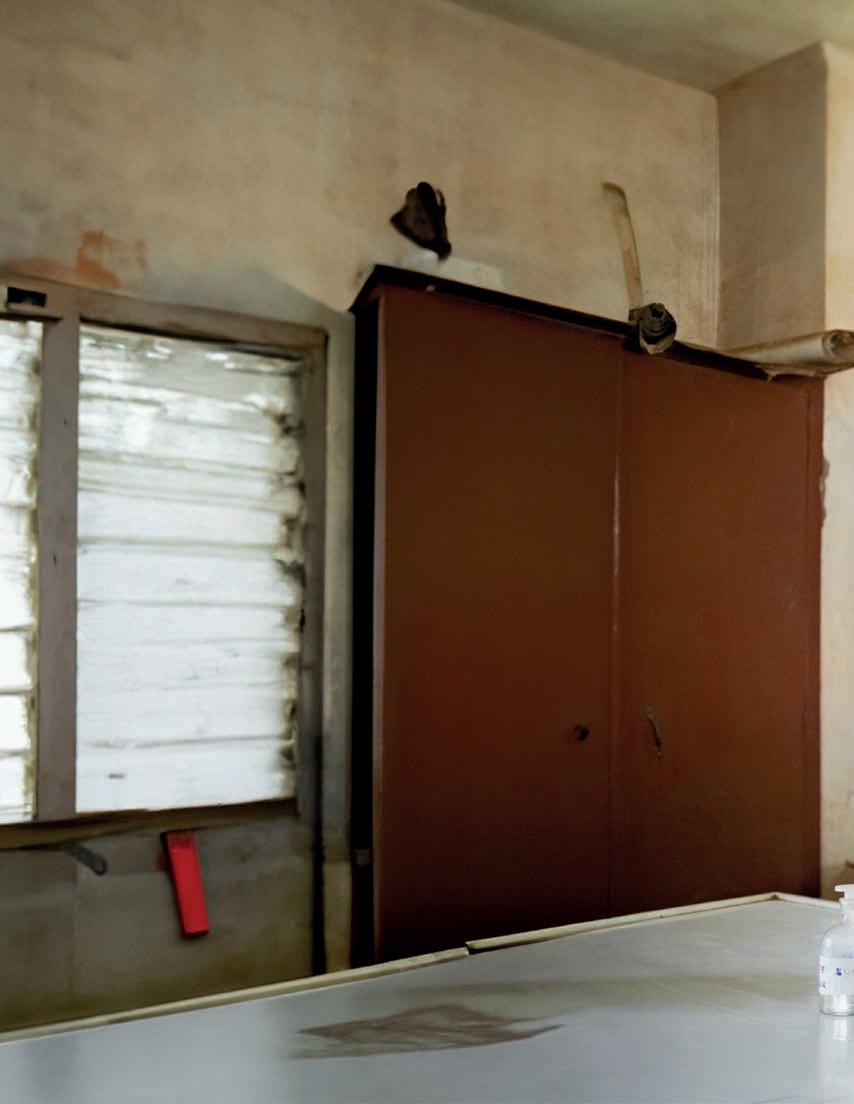
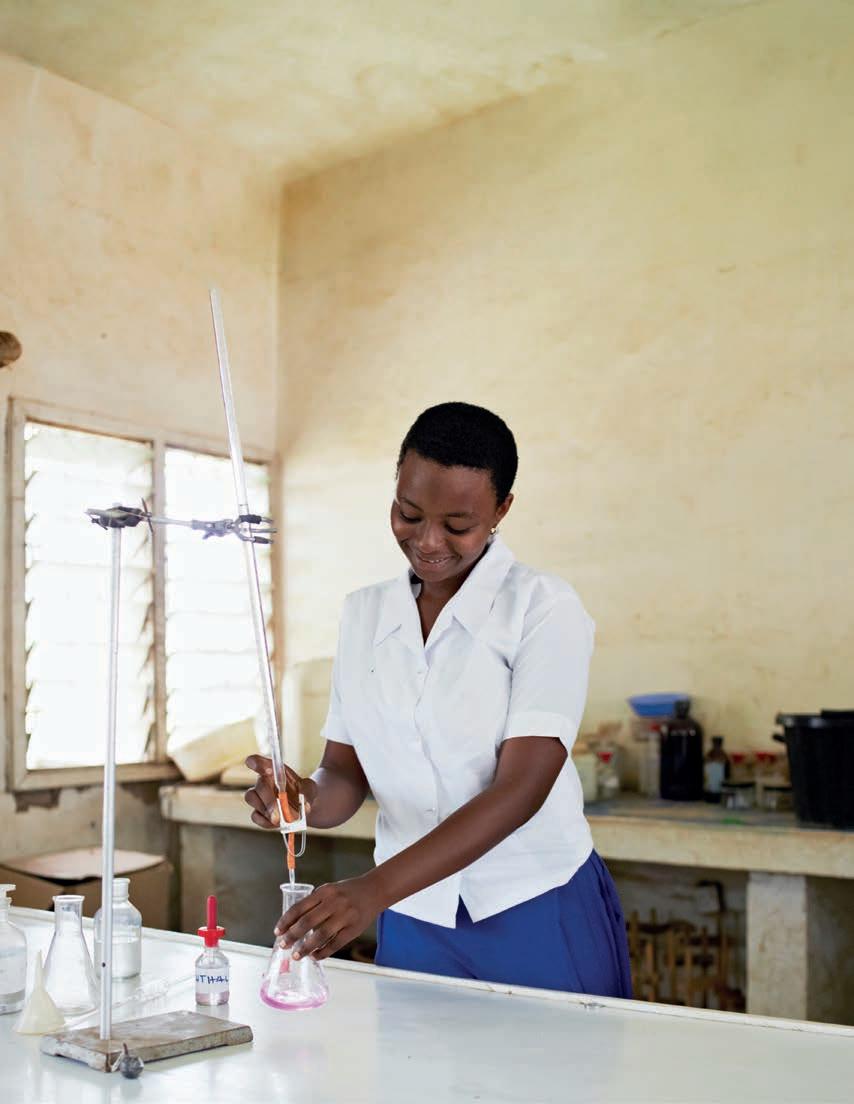
CAMFED anticipates that with the growth of the Association, demand for higher education support will increase ten times by 2030, in the region of 30,000 women.
Together we are...
rowing up, you used to see more animals - like zebras - but they are no longer there. Why?”
This question is posed by Association member, Nonhlahla Makhosi, to a class of 35 students in her local secondary school in Zimbabwe.
“I get different answers,” says Nonhlahla, who is delivering a new in-school climate education program in Kwekwe district. “A lot of the children have lost hope in the environment because of poor harvest, and we are seeing children drop out of school to go and work in gold mines, believing this is their only option.”
Working alongside a Learner Guide, Nonhlahla is talking to students about climate change. She has planted an orchard at the school and has introduced students to agriculture techniques like water harvesting during the rainy season, and crop rotation. The curriculum covers four themes that were not previously taught in school: the causes and impact of climate change; risks, hazards and how to be safe; feeling empowered to undertake climate action; and embedding climate resilience in lives and livelihoods.
Nonhlahla’s students are very enthusiastic about the new content: “It has helped them see that we can still reduce poverty and feed ourselves, despite the heatwaves and droughts. Some of them even have their own small orchards at home. It’s giving them new hope in their future, and they take that back home to their families. They now believe we can live with this thing, we can be resilient to it, and that gives me hope too.”
The in-school education curriculum was co-developed with governments, young women and communities, including agriculture experts such as Esnath Divasoni, who brought insights from CAMFED’s Agriculture Guide program.
“When we started the climate-smart Agriculture Guide program in 2014, we saw a clear shift in communities’ farming practices,” says Esnath. “With the in-school climate curriculum, we expect to see a similar shift in the mindset of young people. It’s not just about food security. We believe it will also impact their career choices after school, even things like construction. When we have communities that are not prepared for climate change we see homes being washed away by cyclones and flooding but, if you have informed communities, they build better.”
Maintaining a suite of solutions that bridge school and community requires that CAMFED works with a range of different government ministries. In Zimbabwe we actively engage with ministry representatives with oversight of schools, justice, parliamentary affairs, public service, social welfare, higher education, science and technology, psychological and special needs.
“It is important that we had the buy-in of the government from the start,” says Esnath. “We developed and pilot tested the content together with them every step of the way. This ensured that it represents topics the governments want the students to learn about, and also gave us the green light to formally roll the curriculum out in all schools, bringing this content to regions where CAMFED is not otherwise working.”

Over more than a decade of partnership, Echidna Giving has supported CAMFED’s ambitions to expand and adapt our model through collaboration with governments.
Sara Ruto, Program Officer at Echidna Giving, explains: “Our founders share a commitment to innovation, rigorous evidence, and solutions that go both deep and wide. We know that effective change comes with resourcing local leaders to shift their own systems. With the trust capital CAMFED has built over 31 years, it is able to introduce and assist with the deployment of these resources at the local, national and regional levels. This is how, together, we are going to achieve long-term change.”
Esnath and her fellow Agriculture Guides in Zimbabwe have to date reached 5,480 women farmers and business-owners with guidance and resources.
Esnath says: “Once we have this huge cohort of young people who know about and understand climate change, they will be able to promote climate justice, and advocate not just for themselves but for others.
It’s crucial that we help the next generation to secure a safer, more sustainable future for all.“
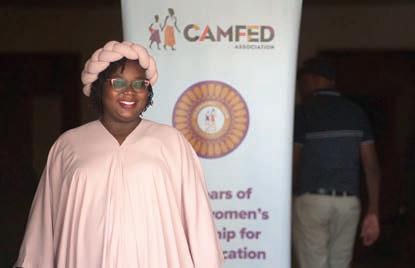
After working together on the co-creation of the climate education curriculum, the Government of Zambia adopted it for use in schools in 2024, accelerating our objective to deliver it across all partner countries to 3.4M children by 2030.
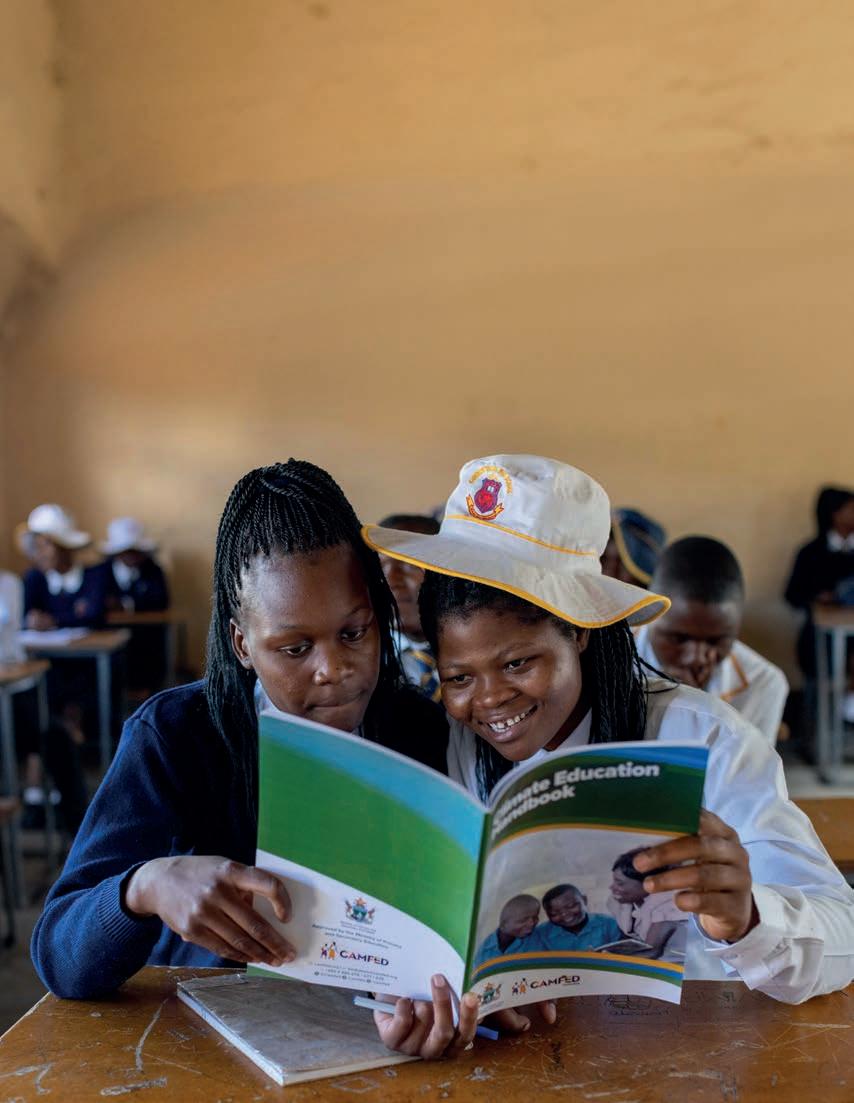
Plans to reach millions more excluded girls are gaining momentum with CAMFED’s registration in a sixth country - Kenya.
In an approach co-designed with the Government of Kenya, CAMFED has scoped out an ambitious plan to be working in at least 400 schools across three counties by 2030, in the process testing the replicability of our model in new geographies.
The expansion plans draw from a year-long analysis of the political, economic, and operating context in Kenya, which among other things found that:
• Despite fee-free education mandates, poverty remains the driving force behind girls’ early marriage, and school drop-out is increasing
• Schools are typically boarding institutions at a distance from rural communities while infrastructure has lagged behind the needs of a traditionally nomadic population
The Kenyan Government sees a role for CAMFED in bringing communities to the decision-making table so that policy supporting universal education translates to practice. They also invite us to support the development of a bursary framework to ensure the quality and standardization of school bursary provision by Government and nongovernment partners in the country.
Barbara Chilangwa, CAMFED’s Executive Advisor for Government Relations, brings 53 years’ experience to these discussions.
She says: “Let’s think of a stool, with three legs holding up a stable seat. Governments don’t want anyone to disrupt their part in it, so we need to hold up our side of the stool without tearing theirs down. Each of us holds up an integral part of the system and provides stability through cooperation, and as each other piece changes.
“With big policy shifts like fee-free education, governments are looking for new perspectives and different approaches,” says Barbara, who before joining CAMFED was Permanent Secretary to the Ministry of Education in Zambia, and later Zambia’s Ambassador to Angola.
“It becomes our responsibility to reflect back to a government what these policy shifts look like in the classroom. This raises more strategic questions: What does the teaching look like? How are we following the African Union’s goal of not leaving any child behind? How are we holding ourselves accountable to each student?
“We shift the mindset of a government by putting forward what makes CAMFED unique: working directly with communities through relationships built on trust. We share the evidence that is available at our fingertips, showing we are reliable, and will make a difference when our approaches are implemented. This is only possible by having the trust of our communities, and by engaging at each level all the way to the top.
“The only way to transform the system is by supporting and strengthening it as we go.”
Expanding into Kenya will be CAMFED’s first country expansion since Malawi 15 years ago.
Anne-Birgitte Albrectsen, Chair of the CAMFED International Board, says: “Expanding into Kenya marks a critical juncture in CAMFED’s history. Together with Kenyan stakeholders, we can strengthen support for vulnerable girls and children, building on existing capacity and addressing unmet needs. We will partner with stakeholders at local, regional and national levels to make gender equity a priority for all. CAMFED is on a journey to growing its impact as a catalyst in new and different contexts where solutions reside in working together.”

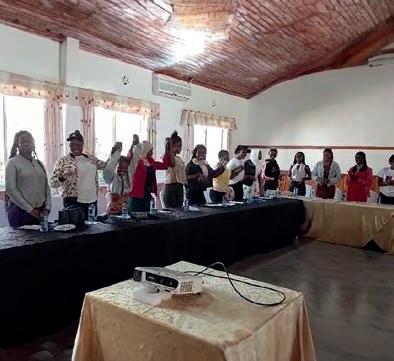
As part of our expansion planned in Kenya, we are engaging 33 CAMFED Association members attending the University of Nairobi who last year established a national chapter. They have been central, together with government partners and district leaders, in informing the design of the initial engagement in Kajiado County, where data show that bursary and Learner Guide provision are most needed.
CAMFED works at the invitation of governments in all its partner countries and shares learning across contexts. Major developments in the last year include:
In Malawi, collaborating with the government to support the implementation of the Malawi Education Reform Program (MERP), which sees the Learner Guide model rolled out across 2,605 schools and all districts in Malawi.
In Ghana, securing agreement with the National Service Scheme to deploy female university graduates with science backgrounds to serve as Learner Guides in underserved regions.
In Zimbabwe, our new role as grant agent for Global Partnership for Education funds, is supporting the Ministry of Primary and Secondary Education to integrate the Learner Guide role in the national education system (35 districts, including 14 with no existing CAMFED footprint).
Lucinda Ramos, Senior Education Specialist at the GPE Secretariat, says: “The rule is that you can’t have system transformation if the stakeholders that are part of that system, that develop that system, that are delivering in that system, the government and the authorities at the different levels, do not embrace the objectives. CAMFED is a critical partner to help enhance capacity, understanding and excitement about something that really aims for better educational outcomes for girls.”
Together we are...
With the growth of the CAMFED Association to more than 278,000 members, increasing numbers of young women from rural communities are now trading, speaking, influencing and championing on the global stage.
Women like Dorcas Apoore, an Association member from northern Ghana, supported by CAMFED through university in 2014. Today, Dorcas’ basket-weaving business, ASIGE, has 450 employees trading across Asia, Europe, the USA, and Africa. She remembers her first major speaking engagement, six years ago, at the European Development Day in Brussels.
“I was put together with the International Monetary Fund’s CEO, a European Commission Director General, and a director of the Bill and Melinda Gates Foundation. I read through their profiles and thought ‘Dorcas, can you really speak with these people?’
“But going through CAMFED’s programs has given me skills and knowledge to feel certain that, wherever I’m invited to talk, I can connect.” says Dorcas, who has since taken an advisory board role on the World Bank’s Solutions for Youth Employment program.
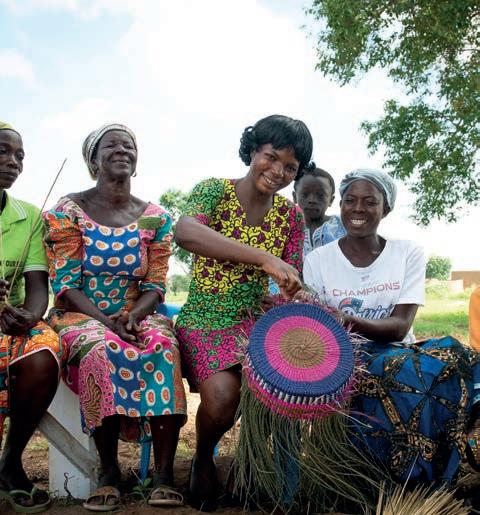
“I share what I’m doing in my community, the number of women we are working with, the girls we have enrolled into education and vocational skills training, how many of those girls have graduated and now employ others. I know how people’s minds can change when they see what’s possible.”
Fiona Mavhinga, Executive Director: CAMFED Association Development, and herself an alumna, is working with young leaders like Dorcas as part of a structured leadership program to develop their skills and confidence to take on these types of appearances and be leaders in their chosen fields.
She says: “CAMFED has always evolved to meet the needs of its graduates, and now the emerging demand is for skills in public speaking, media, diplomacy and negotiation. If we are going to unlock the full potential of these young leaders, their experiences must be heard in forums where policy, commerce, and action are decided.”I
Our donors also appreciate this action plan for global engagement. Roger Ferguson, Former Vice Chairman of the USA Federal Reserve, who started supporting CAMFED last year, explains:
“The African continent is pivotal to the future of the globe, and education, in my view, is pivotal to the future of the continent. Obviously, Africa has challenges, but its relatively large number of next generation individuals differentiates it from Europe, China, Russia and even the U.S.
“This “demographic dividend” can become a “dividend deficit” if not handled well, and the way to reap the full potential of this younger generation is through education. What CAMFED is doing is unique. It makes sense to support it.”
The PR Network, a corporate partner to CAMFED, also stands behind the investment in leadership skills.
In the last year alone, CAMFED Association members have:
• Spoken at the 6th Women Deliver conference on ‘Spaces, Solidarity and Solutions’ in Rwanda
• Secured Fairtrade Certification for six cooperatives (200 women) in Ghana to support global trading
• Shared best practice in early childhood development at the 2024 Eastern Africa Regional Conference
• Presented their personal stories at the Skoll World Forum in Oxford
• Convened to form a Baobab cooperative of 30 businesses in Zimbabwe to address a gap in the regional market
Nicky Regazzoni, co-Founder, says: “As a women-led organisation, we want our work to support causes that represent our company values, and open up global opportunities to others. We are a global network, and we give opportunities to others through the connections that we make. With CAMFED, each educated girl forges her own connections to create a sisterhood of educated women who lead others and serve as role models.
“This is so much more than making a donation to support one girl’s right to education; CAMFED’s work is about showing the world that educating girls shifts the global status quo.”
In March, the 27th Prime Minister of Australia and CAMFED Patron, Julia Gillard, joined CAMFED Association members Abigail Kaindu and Yvonne Chari in Melbourne Australia to co-host a lunch with CAMFED partner MECCA M-POWER.
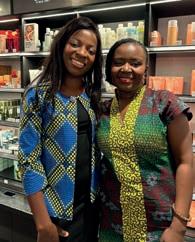
Yvonne, 28, from Zimbabwe, says: “We are here to share our stories to change the narrative and make people believe in our movement. We met CAMFED supporters like our friends at MECCA Cosmetica, who are helping us to share our stories in Australia.”
Abigail, 36, from Zambia, adds: “We have our sisters behind us. They keep us moving. With the support of the CAMFED Association network lifting us up, we are bringing together a global network of people rallying behind us. We left our footprints here and the stories of our sisterhood. We hope they will ignite change and make a difference for the girls coming behind us.”
Together we are...
Responding to youth in crisis around the world, students at Wellington School in Greater Manchester, UK, chose CAMFED for their school’s first international cause in 25 years of fundraising.
“It is hard when you see all the challenges facing young people in the world to know what you can do,” says Zayna, 17, a Wellington student.
More than 1,500 students at the school walked 6 km, some in costume, raising funds to help at least 83 students through school next year. Staff added to the fundraising pot with their own 34-km walk along ‘Ullswater way’ in the UK’s Lake District.
“We are so happy that as a result of our sponsored walk, more young people will have the opportunity to go to school,” says Lucy, 17.
Headteacher Stuart Beeley adds: “As a school community, we see the challenges young people globally face in accessing education. The students of Wellington School really connected with the idea of expanding our reach this year, and I’m immensely proud of all everyone involved.”
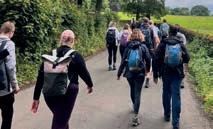
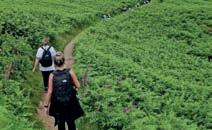

Global technology and management consultancy Capco is providing CAMFED with pro-bono support for its HR policies and operations.
Consultants, Stephanie Lord and Cameron Sayer, say that the partnership, which is in its second year, is of mutual benefit to Capco.
“With CAMFED, the passion and joy from the work is contagious. Everyone is there for the same reason, and this shared central purpose motivates us to bring our best to the partnership.
“We’re helping CAMFED broaden its horizons, while broadening our own as we gain experience working on specialist projects with the team there.”
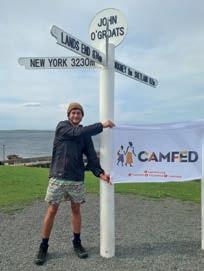
For every month Chris Cheeseman walked across Great Britain he raised enough funds for eight years of schooling in rural Africa.
Chris set off on his 1,200 mile journey from Lands End to John O’Groats in May, and completed it in July. He spoke about CAMFED to everyone he came across on the trail, so far doubling his fundraising goal and raising money to support 25 school years of financial and social support.
Explaining his motivation, Chris says “I grew up in a country where education was free and accessible. As kids we all complained about having to go to school, but education plays a huge part in giving us the agency and opportunities to choose how we live our lives. When a girl is excluded from education, she is excluded from opportunity. When a girl is educated, this is reinvested back into her family to break the cycle of intergenerational poverty.”
However you choose to fundraise, you join the global network of CAMFED supporters making waves across the world. We run a calendar of annual events that bring you closer to our work and put the impact of your donation in context. One example is our School Day Program, which applies the unit cost of one school day - 83¢ - to fundraising events. Since launching in 2022, our donors have collectively amassed more than one million days, enough to support 1,400 girls through the entirety of secondary school. The program was an example cited by The Chartered Institute of Fundraising in awarding CAMFED the 2024 National Fundraising Award for Best Supporter Experience at a ceremony in London in July.
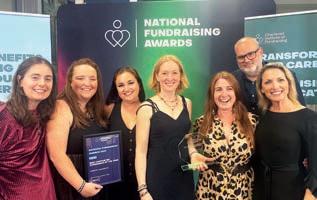
Emily Zemke, CAMFED’s Chief Development Officer, says: “Many of our donors give without ever having visited rural Africa or personally knowing the kind of suffering our clients experience. Whatever their motivation, we want them to have the opportunity to learn with us, to enjoy knowing the impact of their donation, and to connect with others in our network. This award is a wonderful testament to a team that puts the experience of donors at the heart of its work every day.”
Together we are...
In November 2023, New York Times columnist and two-time Pulitzer Prize winner Nicholas Kristof selected CAMFED for a ‘greatest hits’ version of his annual Holiday Impact Prize, marking the second time in three years that we have been awarded the prize. We were also selected as one of ten beneficiary organizations for the New York Times Communities Fund.
Next month, CAMFED CEO, Angeline Murimirwa, joins nine other finalists for the announcement of the 2024 Africa Education Medal, Africa’s most prestigious education accolade. One of three World Education Medals, it aims to provide changemakers with a platform and a network of like-minded peers each shaping the future of education. The winner will be selected by prize sponsors T4 Education and Hewlett Packard, in October.
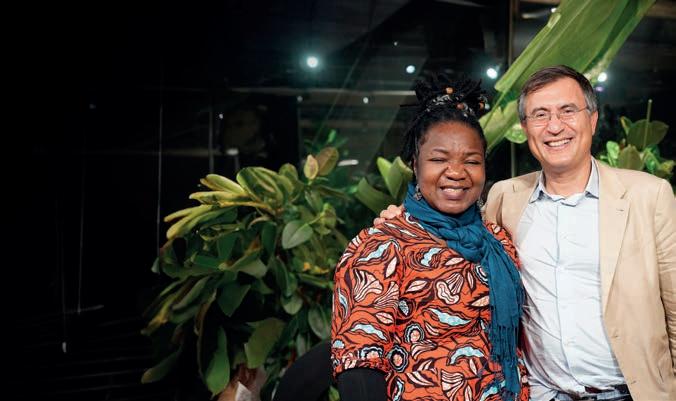
Partners, advisors and leadership joined the launch of our 2030 strategy in London in October. The event celebrated our new ambition to reach 5M more girls this decade, and marked a new partnership with the TED Audacious Project. With thanks to Sir Chris Hohn, Founder of The Children’s Investment Fund Foundation, for his keynote speech, and to our generous hosts at Dojo.
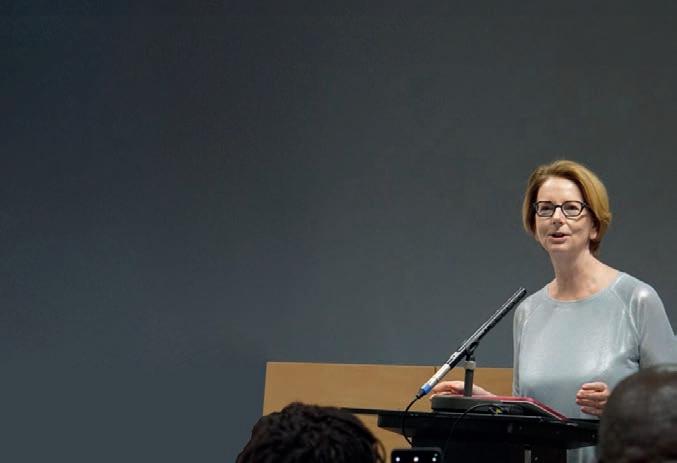
Our Patron, Julia Gillard, joined government and university representatives from Tanzania and the UK for a symposium recognising how women activists are shifting attitudes on gender equity.
“In 2018, a FTSE 100 CEO was more likely to be named Dave or David than to be a woman. This year, we have crossed the threshold of Daves, but not of Daves and Stevens combined. Times are changing, but the rate of change is maddening. We are seeing a downward trend in people’s belief that their children will get to live a better life than they did. But I believe that we are more likely to buy in collectively to say ‘Let’s all put our shoulders to the wheel,’ if we have a shared sense that we are building a better tomorrow as a community for children, grandchildren, and family.” - Julia Gillard
Hosted by the University of Cambridge’s REAL Centre, the Transforming Education Symposium highlighted findings from a research project co-led with the University of Dar es Salaam, showing the critical role Learner Guides play in shifting attitudes towards women in the communities where CAMFED works.
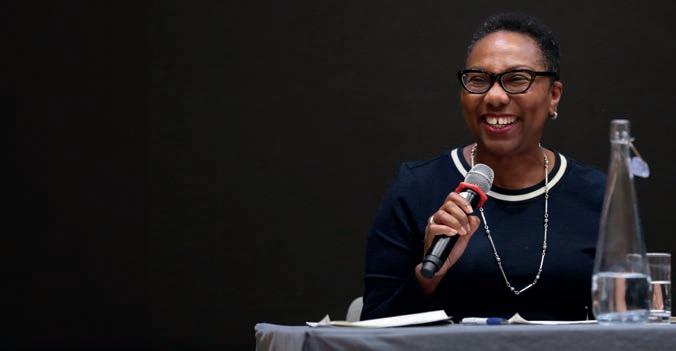
“CAMFED’s journey has been a remarkable one, from a small NGO with a big vision to recently celebrating its 30th anniversary. It has an excellent track record of success over time, including as a dedicated partner to the UK [...]. I firmly believe that at some point in the history of the African continent, a CAMFED girl will become a Prime Minister or President.”
Alicia Herbert OBE, UK Special Envoy for Gender Equality, FCDO


Your philanthropy is the ignition switch in a chain reaction that enables educated young women to give back to their communities. Together with them, we thank you for all the opportunities your donations open up. As one way of saying thank you, we invite you to join the CAMFED Circle, which is designed to connect you with the impact your giving has in effecting transformative change in rural communities.
Members of the Circle can expect to receive:
Quarterly updates on the impact of your philanthropy in the communities we serve
Virtual events with CAMFED Association members at the forefront of our work
Dedicated point of contact with a member of CAMFED staff
Annual report on your gift
Priority invitation to an exclusive event with CAMFED Association members and leadership
Invitation to a program visit (as available)
If you would like to learn how you can join the Circle, please visit camfed.org/circle or contact us at philanthropy@camfed.org.
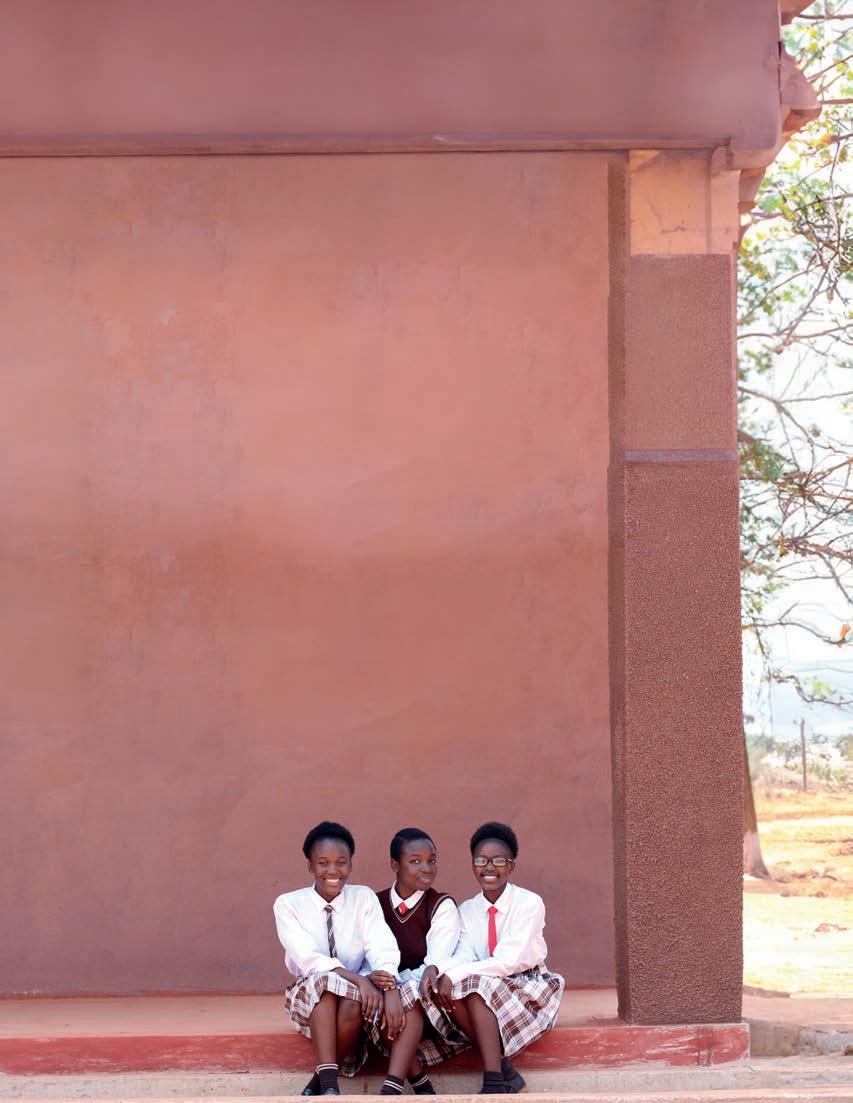
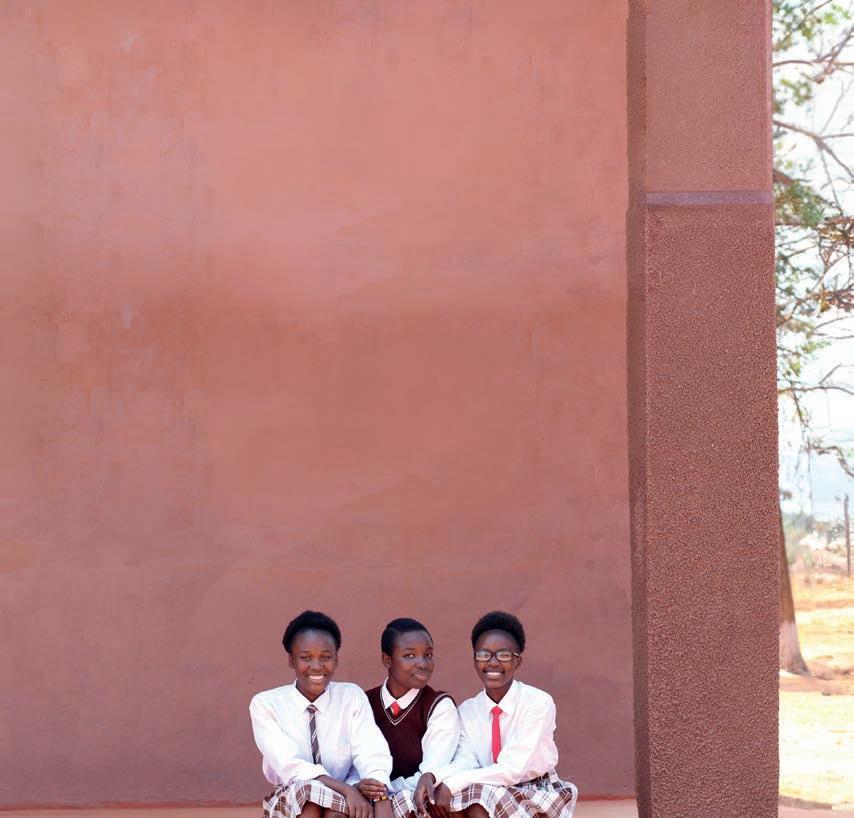
CAMFED International
Emily Zemke Chief Development Officer ezemke@camfed.org
Katie Maude-Barker Associate Director km-barker@camfed.org
Becs Brocken Head of Corporate Relations bbrocken@camfed.org
Karen Jones Manager, Philanthropic Partnerships kjones@camfed.org
Bethany Lee Corporate Partnerships & Fundraising Officer blee@camfed.org
CAMFED USA
Brooke Hutchinson Executive Director bhutchinson@camfed.org
Ann Marie Almeida Director of Development aalmeida@camfed.org
Adrienne Dishman Manager, Institutional Partnerships adishman@camfed.org
Casey Snyder Manager, Donor Engagement csnyder@camfed.org
CAMFED Canada
Sandra Spence Executive Director sspence@camfed.org
Heather Bunting Senior Manager, Donor Engagement hbunting@camfed.org
General inquiries philanthropy@camfed.org
+44(0)1223 362 648 (UK)
+1 415 963 4489 (USA)
+1 416 861-0755 (Canada)